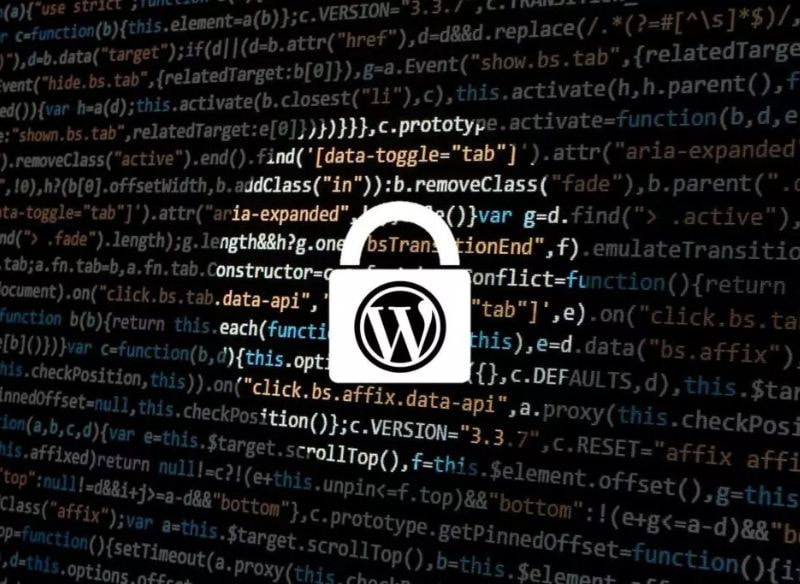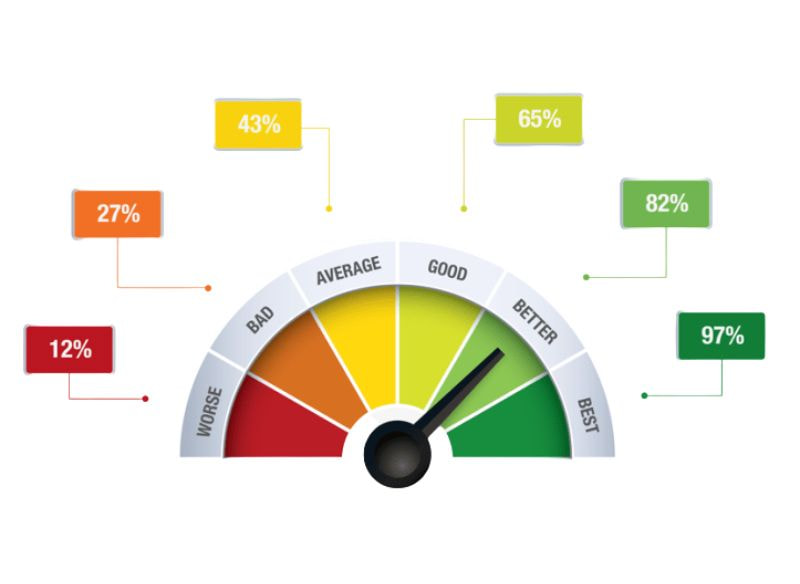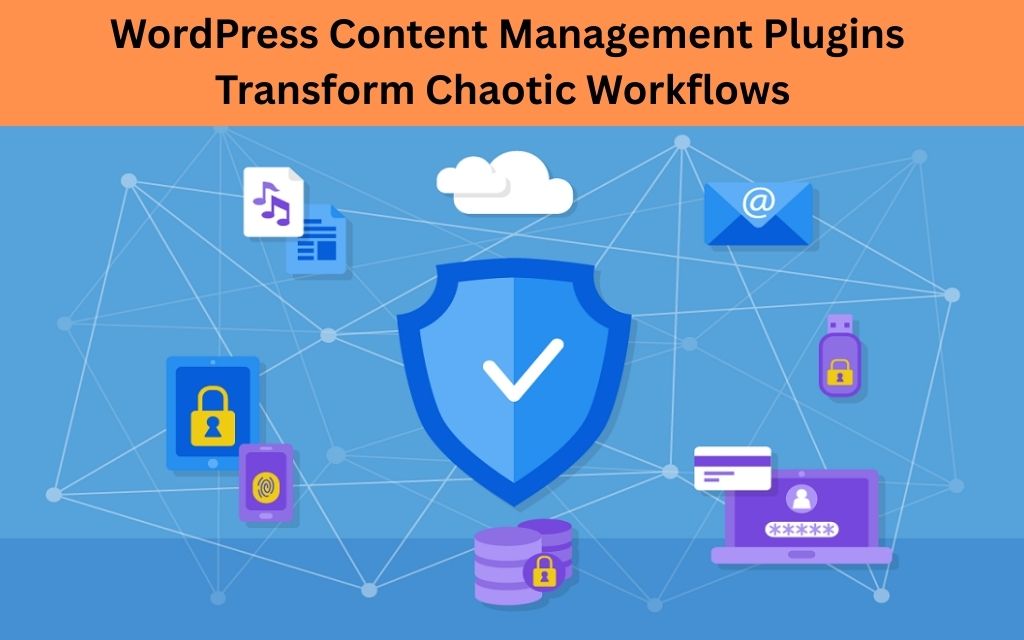No products in the cart.
WordPress Security Plugins That Block 99.9% Of Cyber Attacks
The WordPress security landscape in 2025 presents unprecedented challenges as cybercriminals continue to evolve their attack strategies. With WordPress powering over 40% of all websites globally, it remains a prime target for malicious actors seeking to exploit vulnerabilities. Default WordPress security measures, while foundational, are insufficient for modern websites facing sophisticated threats ranging from brute force attacks to advanced persistent malware.
Security breaches can devastate business reputation and revenue, with studies showing that the average cost of a data breach exceeds $4.45 million in 2025. WordPress security plugins serve as essential guardians, providing comprehensive protection through malware detection, firewall protection, vulnerability scanning, and login security enhancements. These powerful tools integrate seamlessly with WordPress core functionality, offering both automated protection and manual security controls.
I. Understanding WordPress Security Plugin Fundamentals
1. What Are WordPress Security Plugins?
WordPress security plugins are specialized software add-ons that enhance your website’s defense mechanisms against cyber threats. These plugins integrate directly with the WordPress core system, providing comprehensive protection through multiple security layers. The fundamental difference between basic and advanced security features lies in their scope and automation level – basic features focus on essential protection like malware scanning and firewall functionality, while advanced features include threat intelligence, automated malware removal, and enterprise-level monitoring.
Security plugins install through the standard WordPress plugins installation process, but compatibility requirements vary depending on your hosting environment, theme selection, and existing plugin ecosystem. Most modern WordPress security plugins are designed to work seamlessly with popular hosting providers and maintain compatibility with the latest WordPress versions.
2. Why Your WordPress Site Needs Security Protection?

Why Your WordPress Site Needs Security Protection
WordPress faces numerous vulnerability vectors that cybercriminals actively exploit. Common attack methods include SQL injection targeting database security, cross-site scripting (XSS) exploiting theme and plugin vulnerabilities, brute force attacks attempting to breach login security, and malware injection designed to steal sensitive information or redirect traffic.
Statistics from 2024-2025 reveal alarming trends: WordPress security threats have affected over 4 million websites, with small business websites experiencing the highest rate of targeted attacks. The financial impact extends beyond immediate remediation costs to include lost revenue, damaged customer trust, and potential legal implications under data protection regulations like GDPR and CCPA.
Cost analysis consistently demonstrates that proactive security investment delivers significantly higher ROI than reactive breach response. Prevention costs typically range from $100-$500 annually per site, while breach recovery can cost tens of thousands of dollars plus immeasurable reputation damage.
II. Top WordPress Security Plugins Comparison 2025
1. Wordfence Security – Best Overall Protection
Wordfence is the most widely used WordPress security plugin, combining a powerful endpoint firewall with a malware scanner that runs directly on your server. The plugin’s malware detection capabilities utilize real-time threat intelligence from its global network of over 4 million installations, providing comprehensive scanning technology that identifies both known and zero-day threats.
Wordfence’s firewall protection operates at the endpoint level, filtering malicious traffic before it reaches your WordPress installation. The login security features include two-factor authentication, CAPTCHA integration, and sophisticated brute force protection that automatically blocks suspicious IP addresses. The Wordfence security plugin review consistently highlights its robust free tier, though premium features require subscription pricing starting at $119 annually for single-site protection.
Performance impact analysis reveals that Wordfence can consume significant server resources during deep scans, potentially affecting site loading speeds on shared hosting environments. However, the plugin offers scheduling options to minimize resource consumption during peak traffic periods.
2. Sucuri Security – Premium Cloud-Based Solution
Sucuri distinguishes itself through cloud-based website application firewall (WAF) technology that filters traffic before it reaches your server. The Sucuri WordPress plugin cost reflects its premium positioning, with firewall and CDN plans starting at $9.99/month. This cloud-based approach significantly reduces server resource consumption while providing superior DDoS protection and traffic filtering capabilities.
The security monitoring and auditing features include 24/7 professional monitoring by Sucuri’s incident response team, providing enterprise-level threat detection and immediate response capabilities. Integration with hosting environment security is seamless, as the cloud-based architecture works independently of your hosting provider’s infrastructure.
Sucuri’s unique cloud-based scanning methodology and dedicated incident response team set it apart from server-based alternatives, making it particularly valuable for high-traffic websites and e-commerce platforms requiring maximum uptime and security.
3. MalCare – Intelligent Automation Leader
MalCare stands out with its one-click, fully automated malware removal capabilities, scanning and cleaning compromised sites in under a minute. The MalCare security plugin features include vulnerability scanning and patching with automated security updates, ensuring your WordPress installation remains protected against newly discovered threats.

MalCare
MalCare’s backup and restore integration provides security-focused backup solutions that complement its malware protection. The plugin’s claim of 99.9% malware detection accuracy with zero false positives addresses a common frustration with security plugins that generate excessive alerts. External server scanning minimizes resource impact on your hosting environment, making it an excellent choice for shared hosting environments.
The intelligent automation extends to threat prevention, with proactive monitoring that identifies and neutralizes threats before they can compromise your website. This approach particularly benefits small business website owners who lack technical expertise for manual security management.
4. Solid Security (iThemes) – Beginner-Friendly Option
Formerly known as iThemes Security, Solid Security focuses on user-friendly security management for non-technical users. The iThemes security plugin vs Wordfence comparison often highlights Solid Security’s superior user experience and simplified configuration process. User role and permission security management features provide granular control over WordPress user access levels.
File and directory security hardening includes automated permission corrections and access controls that prevent unauthorized modifications. Database security protection encompasses backup optimization and SQL injection prevention. The Solid Security plugin pricing structure offers Personal plans at $70/year for up to 2 sites, Business at $100/year for up to 10 sites, and Agency plans at $150/year for up to 35 sites.
Security for multisite networks capabilities make Solid Security particularly attractive for agencies and developers managing multiple client websites. The learning curve is minimal compared to more technical alternatives, making it ideal for beginners seeking comprehensive protection without complexity.
5. All-In-One WP Security – Comprehensive Free Solution
All-In-One WP Security represents the best free WordPress malware scanner plugin option, providing extensive security features without premium subscription requirements. SSL and encryption implementation features assist with HTTPS migration and certificate management. Spam protection includes comment security features that filter malicious submissions and reduce manual moderation requirements.
The plugin’s feature comparison with premium alternatives reveals impressive depth, though limitations include manual configuration requirements and basic malware detection compared to premium solutions. Upgrade considerations typically arise when websites require advanced threat intelligence, automated malware removal, or professional support services.
III. Essential Security Features Every WordPress Site Needs
1. Core Protection Capabilities
Malware detection and removal form the foundation of WordPress security, utilizing signature-based scanning, heuristic analysis, and behavioral detection to identify threats. Modern scanning techniques include file integrity monitoring, database security scanning, and plugin vulnerability detection to ensure comprehensive coverage.
Firewall protection operates through traffic filtering and attack prevention mechanisms that block malicious requests before they reach WordPress core files. Web application firewall (WAF) technology provides advanced protection against SQL injection, cross-site scripting, and other OWASP Top 10 vulnerabilities.
Vulnerability scanning and patching capabilities include automated WordPress core updates, plugin security monitoring, and theme security analysis. Login security enhancements encompass two-factor authentication (2FA), brute force attack prevention, and IP blocking and whitelisting to control access attempts.
2. Advanced Security Features
Security monitoring and auditing provide comprehensive activity logging and threat tracking capabilities that help identify suspicious behavior patterns. Advanced audit logging captures user actions, file modifications, and system changes to support forensic analysis and compliance requirements.

Advanced Security Features
Database security protection includes encrypted backups, SQL injection prevention, and automated database optimization to maintain both security and performance. File and directory security features implement permission management and file integrity monitoring to detect unauthorized modifications.
Anti-hacking tools encompass proactive threat detection and automated response mechanisms that neutralize attacks before they cause damage. These tools often include blacklist monitoring, DDoS protection WordPress capabilities, and endpoint protection features.
3. Specialized Security Requirements
E-commerce security integration addresses payment protection and PCI compliance requirements essential for online stores. WordPress security plugin for ecommerce store implementations must include specialized features like payment data encryption, secure checkout protection, and regulatory compliance monitoring.
GDPR and privacy compliance features assist with data protection obligations and user rights management. Modern security plugins include privacy policy generators, consent management tools, and data processing audit capabilities to support regulatory compliance.
Security for multisite networks requires centralized protection management and network-wide policy enforcement. Enterprise WordPress security plugin solutions provide scalable protection for large installations with hundreds or thousands of individual sites.
IV. Choosing The Right Security Plugin For Your Needs
1. Small Business And Personal Blog Requirements
WordPress security plugin for small business websites should prioritize ease of use, comprehensive protection, and cost-effectiveness. Essential features include automated malware scanning, basic firewall protection, and login security enhancements. Budget considerations typically favor plugins offering robust free tiers or affordable premium plans under $100 annually.
Performance optimization remains crucial for small business sites, as WordPress security plugin that doesn’t slow down site performance directly impacts user experience and SEO rankings. Integration with hosting environment security should complement rather than conflict with existing server-level protections.
2. E-commerce And Enterprise Security Needs
Online stores require advanced protection addressing payment security, customer data protection, and regulatory compliance. E-commerce security integration must include PCI compliance features, encrypted payment processing, and comprehensive audit logging to protect sensitive financial information.

E-commerce and Enterprise Security Needs
Enterprise WordPress security plugin solutions provide scalable protection for large organizations with multiple websites, complex user hierarchies, and strict compliance requirements. Features like centralized management, white-label options, and dedicated support become essential for enterprise deployments.
3. Developer And Agency Considerations
Web development professionals require WordPress security plugin with backup and restore capabilities, white-label customization options, and multi-site management features. Agency workflows benefit from centralized dashboards, client reporting tools, and bulk security management capabilities.
Client training and ongoing security maintenance considerations include user-friendly interfaces, automated security updates, and comprehensive documentation to support long-term security management without extensive technical intervention.
V. Security Plugin Installation And Configuration Guide
1. Step-By-Step Installation Process
WordPress security plugin installation begins with careful plugin selection based on your specific security requirements and hosting environment compatibility. Download procedures follow standard WordPress protocols through the admin dashboard or manual FTP upload for premium plugins.
Initial configuration typically includes security scan setup, SSL certificate integration, and user role and permission security configuration. Most modern security plugins provide setup wizards that guide users through essential configuration steps while offering advanced options for experienced administrators.
2. Optimization And Performance Considerations

Optimization and Performance Considerations
Minimizing security plugin impact on site speed requires careful configuration of scanning schedules, cache compatibility settings, and resource allocation limits. Popular caching plugins like WP Rocket and W3 Total Cache typically include security plugin compatibility modes that prevent conflicts.
WordPress firewall plugin brute force protection settings should balance security effectiveness with legitimate user accessibility. Regular maintenance schedules should include security plugin updates, scan result reviews, and configuration optimization based on evolving threat landscapes.
VI. WordPress Security Best Practices Beyond Plugins
1. Hosting And Infrastructure Security
Selecting hosting providers with robust security infrastructure significantly enhances plugin effectiveness. Server-level security configurations should complement plugin protection through measures like fail2ban implementation, regular security patching, and network-level firewalls.
SSL certificate integration extends beyond basic HTTPS implementation to include security headers configuration, HSTS enforcement, and certificate monitoring for expiration and vulnerabilities. Regular security auditing should encompass both plugin-generated reports and independent security assessments.
2. Content And User Management Security

Content and User Management Security
User role and permission security management extends plugin capabilities through WordPress core security hardening techniques, strong password enforcement, and regular user access reviews. Content security policies help prevent cross-site scripting attacks while maintaining site functionality.
WordPress backup security integration should complement plugin features with offsite storage, encryption, and regular restoration testing. Comprehensive backup strategies include both file-level and database backups with multiple retention periods to support various recovery scenarios.
VII. Cost Analysis And ROI of WordPress Security Plugins
WordPress security plugins pricing structures vary significantly between free, freemium, and premium models. Free plugins like All-In-One WP Security provide basic protection suitable for low-risk websites, while premium solutions offer advanced features, professional support, and comprehensive threat intelligence.
Wordfence vs Sucuri vs MalCare pricing comparison reveals distinct value propositions: Wordfence offers strong free features with premium upgrades, Sucuri provides cloud-based enterprise solutions at premium pricing, and MalCare emphasizes automation and ease of use at competitive rates. WordPress security plugin comparison studies consistently demonstrate that prevention costs represent a fraction of breach remediation expenses.
Total cost of ownership includes plugin subscription fees, configuration time, ongoing maintenance, and potential performance optimization requirements. Hidden costs may include hosting resource consumption, compatibility testing, and user training requirements.
ROI calculations should consider direct security benefits, reduced manual security management time, improved site performance through optimized security configurations, and enhanced customer confidence. Studies indicate that comprehensive security plugin implementation typically pays for itself within the first prevented security incident.
VIII. Frequently Asked Questions
What Is The Most Popular Security Plugin For WordPress?
Wordfence Security is the most widely used WordPress security plugin, trusted by over 4 million users worldwide. Its popularity stems from robust free features, comprehensive malware detection, and real-time firewall protection. However, the best WordPress security plugin 2025 depends on specific requirements – MalCare excels in automation, Sucuri provides superior cloud-based protection, and Solid Security offers user-friendly management. For expert WordPress security implementation, consider Temply Studio’s professional security services.
Do WordPress Security Plugins Slow Down Websites?
Performance impact varies significantly between plugins and configurations. Cloud-based solutions like Sucuri typically impose minimal server resource consumption, while endpoint-based plugins like Wordfence may affect performance during intensive scans. WordPress security plugin that doesn’t slow down site includes MalCare’s external server scanning and optimized caching integration. Proper configuration, scan scheduling, and hosting environment optimization minimize performance impacts.
Can I Use Multiple Security Plugins On The Same WordPress Site?
Security experts recommend using only one comprehensive security plugin at a time to prevent conflicts. Multiple security plugins can cause functionality conflicts, increased resource consumption, and configuration complications. Instead, choose a single comprehensive solution with WordPress security plugin with two factor authentication, backup integration, and malware protection features.
How Much Should I Expect To Pay For A WordPress Security Plugin?
WordPress security plugin pricing ranges from free (All-In-One WP Security) to enterprise solutions costing hundreds monthly. Mid-range options include Solid Security at $70-150/year and Sucuri’s firewall plans starting at $9.99/month. Small business budgets typically accommodate $100-300 annually for comprehensive protection, while enterprise solutions may require custom pricing for unlimited sites and advanced features.
What’s The Difference Between Free And Premium WordPress Security Plugins?
Free plugins provide basic malware scanning, simple firewall protection, and manual security configurations. Premium versions add automated malware removal, advanced threat intelligence, professional support, and enterprise features like centralized management. The best free WordPress malware scanner plugin offers essential protection, but premium features become valuable for business-critical websites requiring maximum security and minimal manual intervention.
IX. Conclusion
Selecting the optimal WordPress security plugins requires careful consideration of your specific security requirements, technical expertise, and budget constraints. Small business owners benefit from user-friendly solutions like Solid Security or automated platforms like MalCare, while enterprise organizations require comprehensive solutions like Sucuri’s cloud-based protection or Wordfence’s advanced threat intelligence.
The WordPress malware protection landscape continues evolving, making proactive security approaches essential for long-term website success. Regular security auditing, plugin updates, and configuration optimization ensure maximum protection effectiveness. Website security hardening extends beyond plugin installation to encompass hosting selection, user management, and comprehensive security policies.
For professional WordPress security implementation, optimization, and ongoing maintenance, Temply Studio offers expert security services tailored to your specific requirements. Our experienced team provides comprehensive website security compliance, WordPress hardening techniques, and ongoing security monitoring to protect your digital assets. Contact Temply Studio today for a complete security assessment and customized protection strategy that safeguards your WordPress website against evolving cyber threats.









Add comment